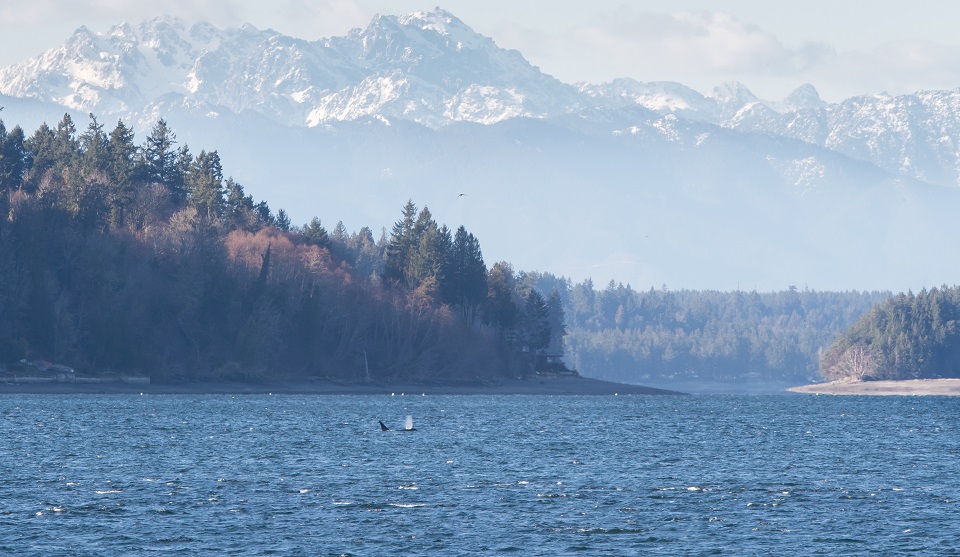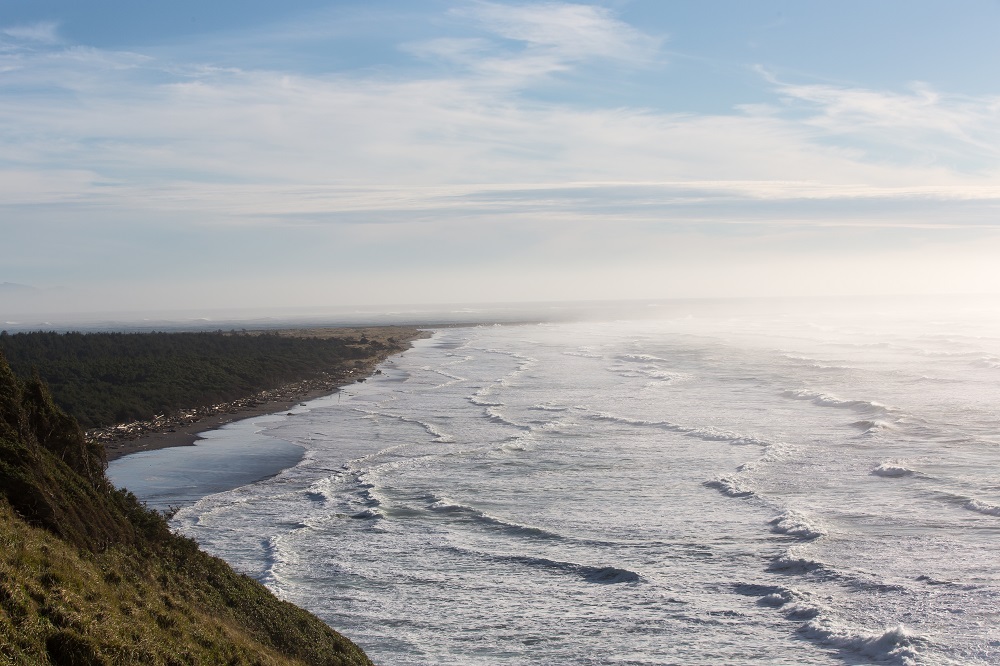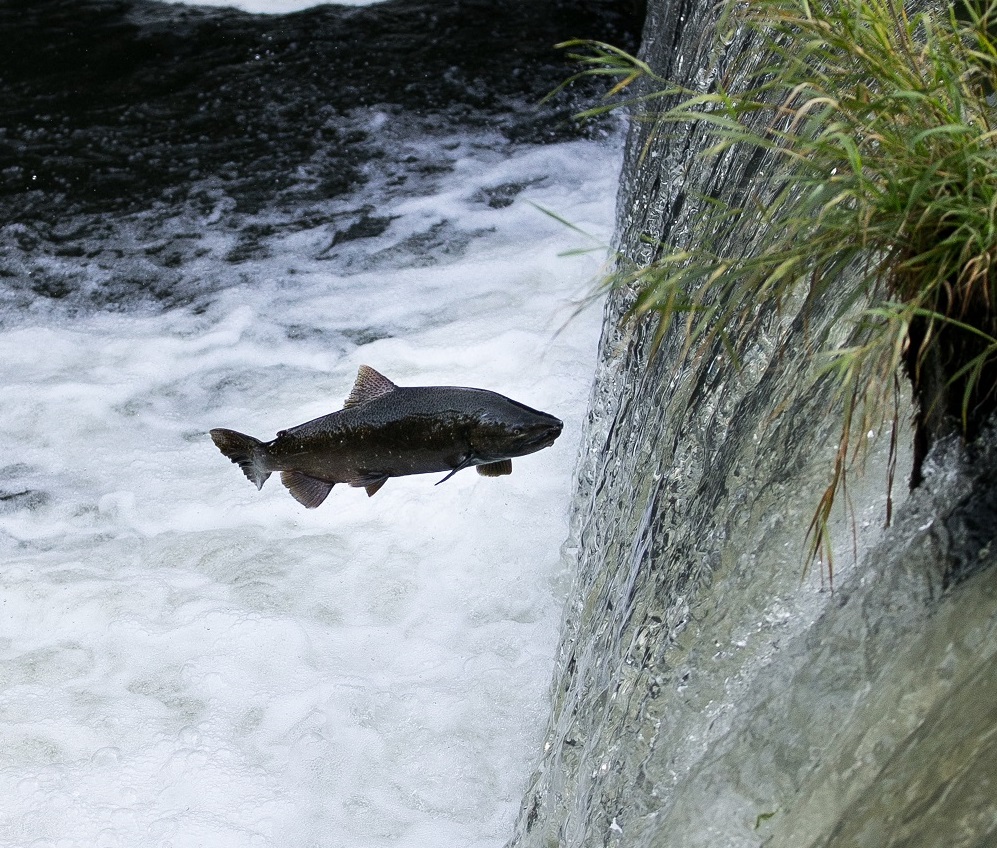Friends,
This Monday was the House’s policy committee cutoff day. The legislative session has a series of deadlines that bills must clear to continue in the legislative process. Any non-tax bills that were not heard and passed out of a policy committee by Monday will not move forward this year. The next cutoff is the fiscal committee cutoff on Monday, February 22. Bills must pass their house of origin by Tuesday, March 9.
I am proud of the work we have done in the House Environment & Energy Committee. We have passed bills that will decrease carbon emissions, require cities and counties to consider climate change, protect salmon, and help transition our homes and buildings to a cleaner future. In this environment e-newsletter I will share an update on several bills that the Environment & Energy Committee passed and where they are in the legislative process.

HB 1091 Clean Fuel Standard
The transportation sector makes up 45% of the emissions in Washington State. In order to take action on climate change, Washington must follow its neighbors on the West Coast and adopt emissions standards for transportation fuel. I have introduced a clean fuel standard for the past couple of years, but after this year’s devastating wildfires, we are finally gaining the momentum we need to join Oregon, California, and British Columbia in regulating our state’s single largest source of emissions.
This bill will not only make our state cleaner and reduce emissions, but it will also spur economic activity and growth. Washington can become a leader in producing and exporting clean, green biofuels. Corporate entities like Alaska Airlines and others like the Port of Seattle recognize that we are falling behind in the race to develop a biofuels industry. A clean fuel standard will reduce emissions in Washington and create sustainable, living wage jobs.
Status: Passed House Environment & Energy, Appropriations, and Transportation committees. Expected for a vote on the House floor as soon as next week.
HB 1050 Regulating Hydrofluorocarbons
Hydrofluorocarbons (HFCs) are powerful greenhouse gases that are mainly used for cooling and refrigeration. They are one of the fastest-growing sources of greenhouse gas emissions and can be as much as 10,000 times more damaging to the climate than carbon dioxide.
The Legislature took a big step in regulating HFCs in 2019, but this legislation will go one step farther by setting a maximum global warming potential threshold and by applying regulations for ozone depleting substances to HFCs. HB 1050 also directs the Department of Ecology to set up a refrigerant management program to safely manage and dispose of HFCs moving forward.
Status: Passed House Environment & Energy and Appropriations committees. Waiting to be put on House floor calendar.

HB 1075 Regulating Greenhouse Gas Emissions from Rideshare Companies
It only takes a short drive around Seattle to see how much Uber and Lyft have changed the landscape of urban and even suburban transportation over the last decade. It is time for these rideshare companies to take responsibility for their emissions impact. HB 1075, requires rideshare companies to record their miles driven and greenhouse gases emitted. That information will be submitted to the Department of Ecology who will set emissions reduction targets that rideshare companies will have to make a plan to meet. Everyone needs to do their part to tackle climate change, and these multi-billion dollar companies are no exception.
Status: Passed House Energy & Environment and Appropriations committees. Waiting to be put on House floor calendar.
HB 1084 Healthy Homes and Clean Buildings Act
Residential and commercial buildings are the second-largest source of greenhouse gases in Washington state, accounting for one fifth of statewide emissions. In order for Washington to meet the goals set out in the 2021 Washington State Energy Strategy, we must confront greenhouse gas emissions from home and building heating. The Healthy Homes and Clean Buildings Act puts Washington’s buildings on track to achieve our science driven climate goals by 2050, with meaningful steps along the way. HB 1084 focuses on standards for new construction, investment in retrofits, and justice for both workers and low-income energy users. Ideally, this legislation will be a model for other states in this important part of the clean energy transition.
Status: Passed House Energy & Environment Committee. Heard in the House Appropriations Committee on February 17.
HB 1099 Adding Climate Change Mitigation as a Goal of the Growth Management Act
The Growth Management Act (GMA) is Washington’s comprehensive land use planning framework. It requires cities and counties to adopt land use plans that consider a range of elements including transportation, land use, and capital facilities. The GMA requires cities and counties to revise and update their plans every eight years. This bill adds climate change mitigation as a goal of the GMA and requires a climate change and resiliency element of the plan that results in reductions in overall greenhouse gas emissions. It also requires the land use element of the plan to consider environmental justice and avoid creating or worsening environmental health disparities.
This bill will make mitigating climate change and planning for climate resiliency integral elements of city and county level planning going forward. It is vital that we consider and mitigate harm to the environment as we continue to grow as a state.
Status: Passed House Environment & Energy Committee. Heard in the House Appropriations Committee on February 16.

HB 1117 Adding Salmon Recovery as a Goal of the Growth Management Act
Similar to HB 1099, this bill adds the goal of salmon recovery to the GMA. It will require that the land use element of planning creates a net ecological gain for salmon habitat. It will also require the capital facilities and transportation elements of a land use plan to work towards eliminating fish passage barriers. Salmon are vital to Washington’s ecosystem and a bedrock of Native American life and culture in our state. This bill ensures that we are working to recover a salmon population that has been declining for decades.
Status: Passed House Environment & Energy Committee. Heard in the House Appropriations Committee on February 16.
Thank you for your passion for our environment. Follow me on Facebook at @RepJoeFitzgibbon for more frequent updates on the status of important environmental bills.
Sincerely,

